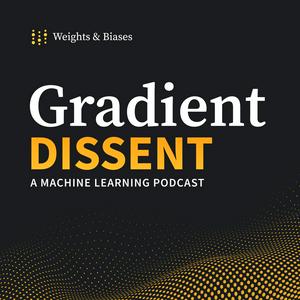The future of AI is physical.
In this episode, Lukas Biewald talks to Nikolaus West, CEO of Rerun, about why the breakthrough required to get AI out of the lab and into the messy real world is blocked by poor data tooling.
Nikolaus explains how Rerun solved this by adopting an Entity Component System (ECS), a data model built for games, to handle complex, multimodal, time-aware sensor data. This is the technology that makes solving previously impossible tasks, like flexible manipulation, suddenly feel "boring."
Connect with us here:
Nikolaus West: https://www.linkedin.com/in/nikolauswest/
Rerun: https://www.linkedin.com/company/rerun-io/
Lukas Biewald: https://www.linkedin.com/in/lbiewald/
Weights & Biases: https://www.linkedin.com/company/wandb/


